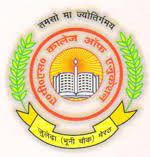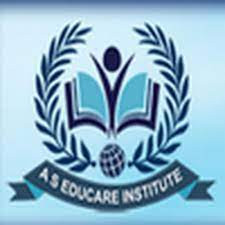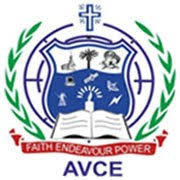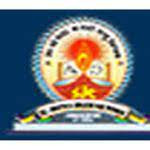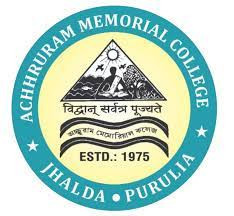The program outcome for the B.Ed. degree is as follows:
- To provide students with curriculum planning and teaching abilities
- It equips students to assume professional duties toward their peers.
- Discover the fundamentals of integrating ICT into teaching techniques.
Details of the entire course summary:
|
Degree Name |
B Ed full form is Bachelor of Education |
|
Eligibility Criteria |
Full Time: Completed Graduation from a recognised university with 50% marks. Distance: Completed graduation as well as 2 years of teaching experience |
|
Degree Type |
Undergraduate |
|
Course Duration |
2 years |
|
Education Mode |
Full-Time/ Distance |
|
Course Fee |
INR 40,000- 2 lakh |
|
Job Profiles |
Trained Graduate Teacher, Post Graduate Teacher, Secondary Teacher, Vice-Principal, Principal, Content Developer, Subject Matter Expert |
|
Entrance Exams |
RIE CEE, PTET, DUET, IGNOU B. Ed. Entrance |
B.Ed. Qualification Standards
Candidates should be informed of the necessary eligibility requirements for B.Ed. admissions before submitting an application for the course.
Some of the most significant prerequisites for the B. Ed. program are listed below:
- Educational Requirements: In order to be eligible for a B. Ed., candidates must have graduated from any stream (Arts, Science, or Commerce). However, if a candidate has graduated with at least 50–55% of their UG marks, they can participate in the admissions process for most well-known B. Ed. universities' B Ed courses.
- Age Limit: Most institutions do not have an age restriction for B. Ed. admissions. However, several B. Ed. colleges need applicants to be at least 19 years old in order to be considered for admission.
B.Ed. in Remote Learning
Admission to the Distance Education program is based on both entrance exams and merit lists. The individual universities administer the entrance exam for remote B.Ed. programs. The remote B.Ed program IGNOU, for instance, has its own entrance exam. Merit lists are used to determine admission to other well-known universities like Lovely Professional University and Netaji Subhas Open University.
The following are standard requirements for eligibility for the Distance B.Ed course that a person has to be aware of.
- The candidates' graduation exam score, or an equivalent exam, must be at least 50%.
- For a B.Ed. degree, the applicant needs to receive at least 55%.
- A 5% relaxation is granted to candidates belonging to the reserved category.
- The candidates needed to be experienced, in-service educators. Candidates may enroll in the distance education course provided they have completed at least two years of primary or secondary teaching experience.
- No minimum or maximum age is necessary to be admitted.
- The Distance B.Ed general course prices range from INR 40,000 to INR 110,000.
B.Ed Specialisations
- B.Ed. in Hindi
- B.Ed. in Computer Science
- B.Ed. Special Education
- B.Ed. in Sanskrit
- B.Ed. English
- B.Ed. Commerce
- B Ed. Psychology
- B.Ed. Mathematics
- B.Ed. Economics
- B.Ed. Physical Education
- B.Ed. Physical Science
B.Ed. Syllabus
|
B.Ed. Semester-1 |
B.Ed. Semester-2 |
B.Ed. Semester-3 |
B.Ed. Semester-4 |
|
Childhood and Growing Up |
Learning and Teaching |
Pre- internship |
Gender, School and Society |
|
Contemporary India and Education |
Pedagogy of School Subject-1 – Part II |
Internship |
Reading and Reflecting on Texts |
|
Language across the Curriculum |
Pedagogy of School- 2 – Part II |
Engagement with the field- tasks and Assignments |
Arts in Education |
|
Pedagogy of School Subject-1 – Part I |
Knowledge and Curriculum |
- |
Understanding the Self |
|
Pedagogy of School Subject-2 – Part I |
Assessment for Learning |
- |
Creating an Inclusive School |
|
School Exposure |
School Attachment |
- |
Health, yoga and physical education |
|
Field Engagement activities |
Community living camp |
- |
Engagement with the Field: Tasks and Assignments |
How Does a B.Ed. Graduate Find Employment?
- Candidates can apply directly for positions as Subject Matter Experts in Ed-Tech companies or as Teachers in private schools after earning their B.Ed. However, the primary prerequisite for employment as a teacher in a government school is passing the Teacher Eligibility Test(TET).
- Students are encouraged to complete a practical course throughout their B.Ed. program, which requires them to teach at a school as part of the curriculum. This exercise helps the students gain experience. In order to become an Assistant Professor, those who want to work in academia must complete a two-year Master of Education (M.Ed.) program and pass the UGC-NET exam. Candidates must possess excellent communication and organisational abilities, as well as patience and understanding for pupils.
Career after B.Ed.
Since the NCTE mandated that candidates for teaching positions must hold a B.Ed., the value of the degree has skyrocketed. This is evident in the rising number of students enrolling in B.Ed. programs following graduation. Universities administer entrance exams to candidates for this course. Many prestigious universities, like the Regional Institute of Education, hold entrance exams for their four-year integrated B.Ed. programs. The government is supporting educational initiatives more, and prestigious universities and educational organizations hire thousands of new teachers each year.
Following a B.Ed., some of the jobs one can pursue are listed below:
Counsellor: Counsellors assist and counsel students significantly by listening to their issues and involving them in interactive activities. Numerous residential schools employ counsellors to help children not in their homes. Certain counsellors also serve as educational counsellors, offering guidance to parents or students regarding the best career path.
Trained Graduate Teacher: Those who have finished their B.Ed. program after graduating are considered Trained Graduate Teachers. They are qualified to instruct students up to the 10th grade in reputable private and public institutions.
Post-Graduate Teacher: A teacher with this degree is qualified to instruct students up to the 12th grade. Before or after pursuing a B.Ed., he/she must have finished post-graduation in order to be hired immediately to teach at the senior secondary level.
Content Writer: A lot of Ed-Tech businesses employ content writers with backgrounds in relevant fields like science, math, social science, etc. They offer carefully chosen content based on reader requests.
Principal: The principal's role holds significant administrative weight. He is in charge of overseeing all staff members and pupils and ensuring that the school's laws and regulations are followed.
Subject Matter Expert: The subject matter experts employed by Ed-Tech and online coaching firms like Vedantu, BYJUs, and Unacademy cover a wide range of subjects. They answer questions, offer advice, and dispel students' fears.
Tuition Teacher/Home Tutor: A lot of B.Ed. graduates go on to start their own private coaching businesses or work as home tutors, charging an hourly or monthly fee.
Scope of B.Ed.
You can pursue further education after earning your diploma in this course. You can choose from a variety of higher degrees.
- A two-year postgraduate degree in education is known as the Master of Education or M.Ed. Through this course, you will learn in-depth information on every facet and subject related to schooling. This course can also be taken for a year at a few colleges. A 50%–60% B.Ed. score is required to pursue an M.Ed.
- The doctorate in education, or PhD (Education), is the highest degree in education and can only be sought after a master's degree in education has been earned. After earning your Ph.D., you have access to a wide range of profitable career fields.
FAQs
1. What is B.Ed.?
B.Ed. Stands for Bachelor of Education, where Students enrolled in this undergraduate professional degree program are equipped for a career in teaching.
2. How long does the B Ed course last?
On average, a B. Ed. program lasts two years. However, some universities may offer a one-year B. Ed. program for applicants who have already finished an appropriate postgraduate degree.
3. What are the requirements to be eligible for a B. Ed.?
Having a bachelor's degree in any field from an accredited university with a minimum cumulative GPA of 50% is one of the usual eligibility requirements. Institutions have different specific criteria.
4. Is it possible to pursue a B.Ed. via distance education?
Yes, you can choose between open learning and remote education for your B.Ed.
5. What is the minimum age to pursue a B.Ed.?
You can pursue a B.Ed. between the ages of 21 and 35.

